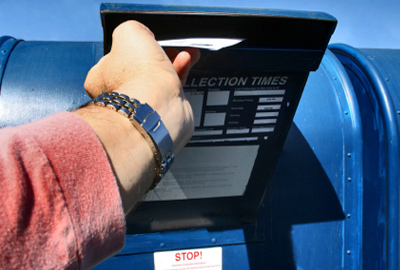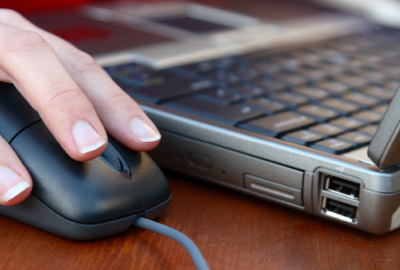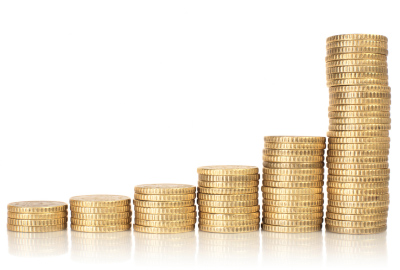
Profit and prosper with the best of Kiplinger's advice on investing, taxes, retirement, personal finance and much more. Delivered daily. Enter your email in the box and click Sign Me Up.
You are now subscribed
Your newsletter sign-up was successful
Want to add more newsletters?

Delivered daily
Kiplinger Today
Profit and prosper with the best of Kiplinger's advice on investing, taxes, retirement, personal finance and much more delivered daily. Smart money moves start here.

Sent five days a week
Kiplinger A Step Ahead
Get practical help to make better financial decisions in your everyday life, from spending to savings on top deals.

Delivered daily
Kiplinger Closing Bell
Get today's biggest financial and investing headlines delivered to your inbox every day the U.S. stock market is open.

Sent twice a week
Kiplinger Adviser Intel
Financial pros across the country share best practices and fresh tactics to preserve and grow your wealth.

Delivered weekly
Kiplinger Tax Tips
Trim your federal and state tax bills with practical tax-planning and tax-cutting strategies.

Sent twice a week
Kiplinger Retirement Tips
Your twice-a-week guide to planning and enjoying a financially secure and richly rewarding retirement

Sent bimonthly.
Kiplinger Adviser Angle
Insights for advisers, wealth managers and other financial professionals.

Sent twice a week
Kiplinger Investing Weekly
Your twice-a-week roundup of promising stocks, funds, companies and industries you should consider, ones you should avoid, and why.

Sent weekly for six weeks
Kiplinger Invest for Retirement
Your step-by-step six-part series on how to invest for retirement, from devising a successful strategy to exactly which investments to choose.
Nowadays eveything is about making life easier and paying bills is no exception. Between snail mail, fraud and paper and postage costs, paying your bills online can save you time and money. Click through the slide show to the right for tips and benefits of "e-billing".
By Mark Solhei
More Lowdowns:
What You Need to Know About...

YOUR BEST BET IS A BANK.
Paying online at individual billers' Web sites is a hassle-you have to remember a slew of URLs, user names and passwords. But if you use your bank's bill-pay service, you can pay all your bills at one site with one user name and one password. Go directly to the biller's site only to pay last-minute bills you might have overlooked.

PAPER BILLS MAY COST YOU.
Blue Cross of California is charging hundreds of thousands of its individual policyholders $2 a month to put their bills in the mail. Another California insurer, Health Net, bills policyholders who choose paper $5 a month. Phone company MCI charges 99 cents a month for paper bills, and Internet service provider EarthLink charges $1. To avoid the fee, customers must sign up for "e-bills" at the company's Web site or pay automatically through their bank.

IF THE SERVICE ISN'T FREE, YOU COULD BE PAYING TOO MUCH.
With most third-party bill payers, you spend about as much as you would if you mailed checks. For example, Yahoo Bill Pay is free for three months, after which you pay $4.95 a month for 12 payments and 40 cents for each additional payment. Many banks, however, have lowered or done away with fees because they want to wean customers off paper checks.

USE QUICKEN OR MONEY? YOU'LL PAY TO UPGRADE.
The big software companies discontinue technical support and online services for their products after about three years. For example, as of last April, Quicken 2004 users could no longer download account information from their financial-services firms. To keep abreast of your financial details, you need to buy the latest version-at a cost of at least $29.99.
Plus, some banks charge customers to download account information through money-management software. For example, Wachovia instituted a $5.95 monthly fee for some accounts earlier this year. You can avoid the fee if you go to the site, download your statement, then import it into your program.

YOUR MONEY KEEPS EARNING INTEREST.
In the early days of online bill-paying, your account was often debited days before the money reached the biller. Now, for bills paid electronically your account is debited the same day your payment is credited. When an online bill-pay service has to send a paper check, your account is usually debited after the biller deposits the check.
ING's Electric Orange account takes online bill-paying to the next level: Enter the recipient's information and the details of the payment, and an e-mail is sent. The recipient clicks on the link within the e-mail to enter the account information and the money is transferred. Meanwhile, you earn 4% interest until the money is gone.

IT'S SAFER THAN SNAIL MAIL.
Most financial fraud occurs when checks, credit cards and account statements are stolen from mailboxes. Online financial transactions are encrypted to help reduce the possibility of identity theft. Plus, if you use your bank as your go-to bill-payer, you avoid sharing your account information with multiple billers, which helps to secure your data against hackers.
Profit and prosper with the best of Kiplinger's advice on investing, taxes, retirement, personal finance and much more. Delivered daily. Enter your email in the box and click Sign Me Up.
-
 The New Reality for Entertainment
The New Reality for EntertainmentThe Kiplinger Letter The entertainment industry is shifting as movie and TV companies face fierce competition, fight for attention and cope with artificial intelligence.
-
 Stocks Sink With Alphabet, Bitcoin: Stock Market Today
Stocks Sink With Alphabet, Bitcoin: Stock Market TodayA dismal round of jobs data did little to lift sentiment on Thursday.
-
 Betting on Super Bowl 2026? New IRS Tax Changes Could Cost You
Betting on Super Bowl 2026? New IRS Tax Changes Could Cost YouTaxable Income When Super Bowl LX hype fades, some fans may be surprised to learn that sports betting tax rules have shifted.
-
 What to Do With Your Tax Refund: 6 Ways to Bring Growth
What to Do With Your Tax Refund: 6 Ways to Bring GrowthUse your 2024 tax refund to boost short-term or long-term financial goals by putting it in one of these six places.
-
 What Does Medicare Not Cover? Eight Things You Should Know
What Does Medicare Not Cover? Eight Things You Should KnowMedicare Part A and Part B leave gaps in your healthcare coverage. But Medicare Advantage has problems, too.
-
 15 Reasons You'll Regret an RV in Retirement
15 Reasons You'll Regret an RV in RetirementMaking Your Money Last Here's why you might regret an RV in retirement. RV-savvy retirees talk about the downsides of spending retirement in a motorhome, travel trailer, fifth wheel, or other recreational vehicle.
-
 The Six Best Places to Retire in New England
The Six Best Places to Retire in New Englandplaces to live Thinking about a move to New England for retirement? Here are the best places to land for quality of life, affordability and other criteria.
-
 The 10 Cheapest Countries to Visit
The 10 Cheapest Countries to VisitWe find the 10 cheapest countries to visit around the world. Forget inflation and set your sights on your next vacation.
-
 15 Ways to Prepare Your Home for Winter
15 Ways to Prepare Your Home for Winterhome There are many ways to prepare your home for winter, which will help keep you safe and warm and save on housing and utility costs.
-
 Six Steps to Get Lower Car Insurance Rates
Six Steps to Get Lower Car Insurance Ratesinsurance Shopping around for auto insurance may not be your idea of fun, but comparing prices for a new policy every few years — or even more often — can pay off big.
-
 How to Increase Credit Scores — Fast
How to Increase Credit Scores — FastHow to increase credit scores quickly, starting with paying down your credit card debt.
